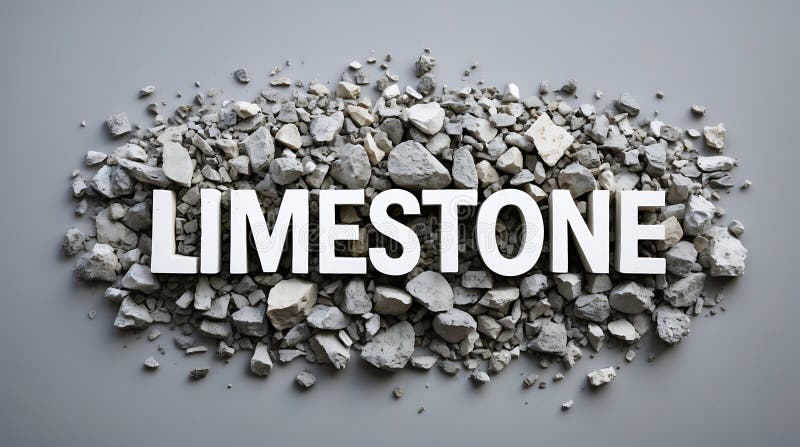Have you been wondering what is limestone used for? Or wondering what limestone is used for driveways? You're not alone! Limestone is one of the most fundamental and versatile bulk materials used in construction, landscaping, and beyond. This article aims to answer your most common questions about limestone, helping you make informed decisions for your next project.

Q: What is limestone made of? Limestone is primarily composed of calcium carbonate (CaCO3). This common sedimentary rock often contains fragments of marine organisms like shells, coral, and algae, making it a natural marvel.
Q: How is limestone formed? / How limestone rock is formed? Limestone is a sedimentary rock that forms over millions of years. It typically originates in clear, warm, shallow marine waters where calcium carbonate precipitates out of water or is deposited by the accumulation of organic remains. These layers are then compacted and cemented into rock.
Q: Where is limestone found? Limestone deposits are found all over the world. In the United States, significant deposits are common across many states, including Indiana, Tennessee, Kentucky, Alabama, and Georgia, which are key regions for AggregateMarkets.com's service areas.
Q: What type of rock is limestone? Is limestone an igneous rock? Limestone is a sedimentary rock. This is an important distinction! It is not an igneous rock, which forms from cooled magma or lava.
Q: What is limestone used for? / What does limestone do? / Why is limestone used? Limestone's versatility is truly remarkable. It serves as a crucial material for:
Q: Can limestone be used for roads? Yes, absolutely! Limestone aggregates are extensively used in road construction. Crushed limestone provides a strong and stable base layer for roads, highways, and parking lots. Its compaction properties make it ideal for supporting heavy traffic. Usually larger stones are used as base, smaller fraction stones for the main layer.
Q: What about limestone for driveways? Which limestone is best for driveways? Is limestone good for driveways? Limestone is an excellent choice for driveways due to its durability and ability to compact tightly, creating a firm surface. For driveways, you'll often see specific sizes of crushed limestone recommended, such as #4 Limestone or #57 Limestone. These sizes offer good compaction and drainage. The best type depends on your specific needs for base layers versus top dressing.
Q: Is limestone good for drainage? Yes, certain sizes of crushed limestone are highly effective for drainage. Larger, more angular pieces like #2 Limestone, #4 Limestone, #7 Limestone, or #67 Limestone allow water to flow freely while preventing soil erosion, making them perfect for French drains, ditch lining, or improving soil permeability.
Q: How is limestone used in landscaping? Limestone is a favorite in landscaping for various reasons. It's used to create attractive and functional elements:
Q: Can limestone be crushed? Yes, limestone is commonly crushed into various aggregate sizes. This process is how quarries produce the different numerical grades of limestone (like #2, #4, #57, #8) and even limestone "rock sand" for different construction and landscaping purposes.
Q: How can I buy bulk limestone? Is limestone for sale near me? When you need "limestone for sale" or are looking for "limestone to buy," finding a reliable supplier who can deliver is paramount. While "near me" implies physical proximity, modern bulk material suppliers like AggregateMarkets.com leverage extensive networks to provide convenient, direct-to-site delivery services across a wide geographic area, including Indiana, Tennessee, Kentucky, Alabama, and Georgia. This means you can get bulk limestone delivered right to your home or job site, often more efficiently than sourcing from a local quarry yourself or spending hours to find a local trucker.
Whether you need a small amount for a residential project or bulk quantities for commercial construction, AggregateMarkets.com simplifies the process. We provide various types and sizes of limestone, including: